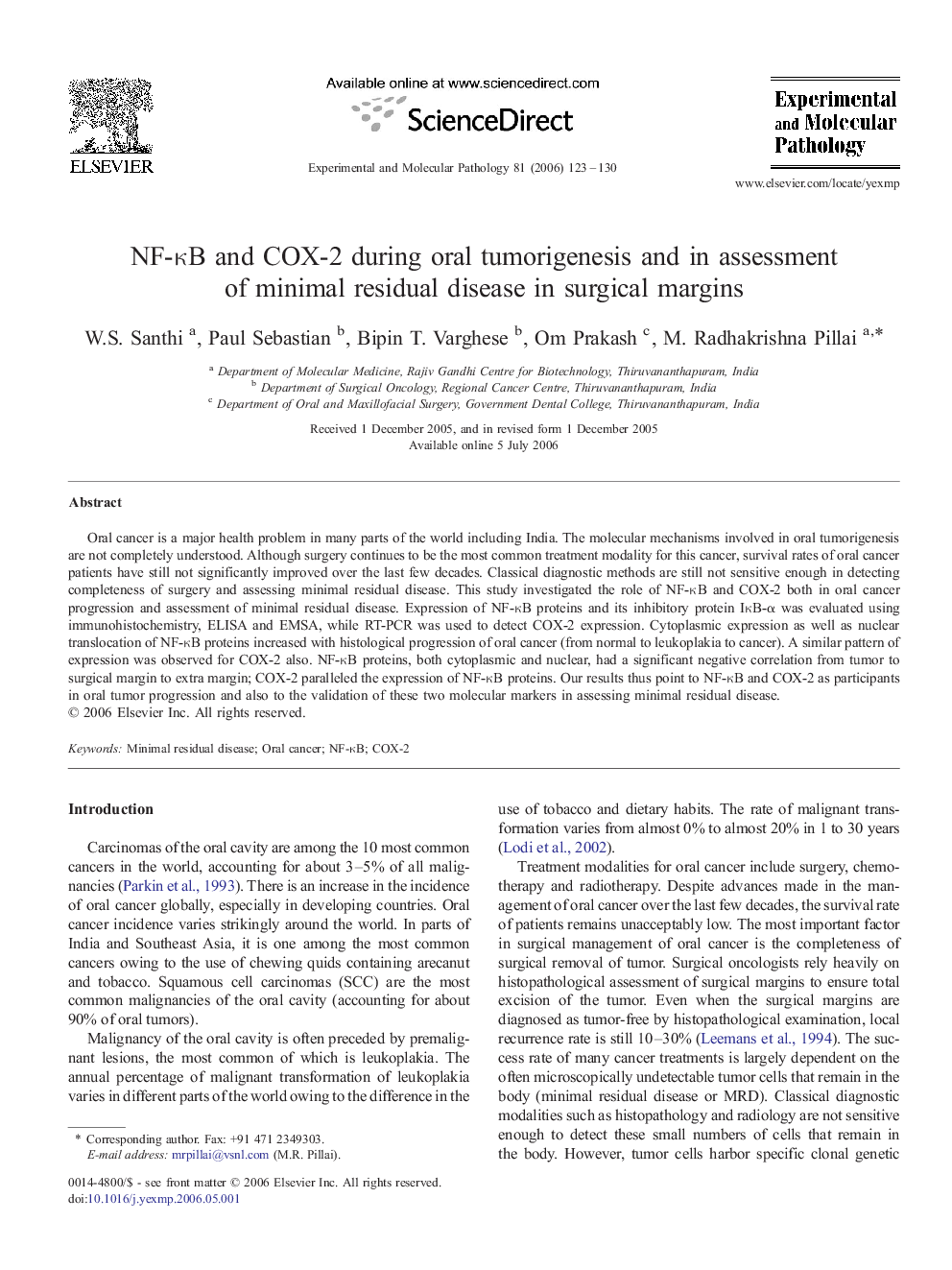| Article ID | Journal | Published Year | Pages | File Type |
|---|---|---|---|---|
| 2775995 | Experimental and Molecular Pathology | 2006 | 8 Pages |
Oral cancer is a major health problem in many parts of the world including India. The molecular mechanisms involved in oral tumorigenesis are not completely understood. Although surgery continues to be the most common treatment modality for this cancer, survival rates of oral cancer patients have still not significantly improved over the last few decades. Classical diagnostic methods are still not sensitive enough in detecting completeness of surgery and assessing minimal residual disease. This study investigated the role of NF-κB and COX-2 both in oral cancer progression and assessment of minimal residual disease. Expression of NF-κB proteins and its inhibitory protein IκB-α was evaluated using immunohistochemistry, ELISA and EMSA, while RT-PCR was used to detect COX-2 expression. Cytoplasmic expression as well as nuclear translocation of NF-κB proteins increased with histological progression of oral cancer (from normal to leukoplakia to cancer). A similar pattern of expression was observed for COX-2 also. NF-κB proteins, both cytoplasmic and nuclear, had a significant negative correlation from tumor to surgical margin to extra margin; COX-2 paralleled the expression of NF-κB proteins. Our results thus point to NF-κB and COX-2 as participants in oral tumor progression and also to the validation of these two molecular markers in assessing minimal residual disease.
